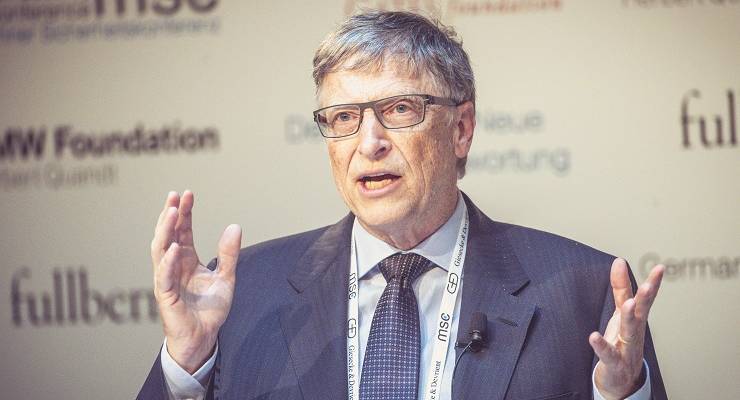
At a time of national crisis we should all be hoping for the success of our leaders. Their success is our success. And it is too early to know whether Scott Morrison’s incremental rather than decisive approach to handling the COVID-19 crisis will turn out to be the right one.
But it is an appropriate time to discuss the role of “experts” in advising on the handling of the crisis.
Who are we listening to?
In a global crisis, when many other countries are facing precisely the same issues, surely we should be learning from experts in other countries — not just those in Australia.
It’s entirely natural that Australia’s chief medical officer Brendan Murphy, his deputy Paul Kelly, and Alex Caroly — head of policy in the Prime Minister’s Office, but who has a background in health policy — constitute the core team advising Morrison and Health Minister Greg Hunt on Australia’s response to the crisis.
There is also Dr Nick Coatsworth, a noted respiratory and infectious diseases clinician who trained other clinicians in the ebola outbreak and is now also a deputy to Murphy; and also the 22 member Go8 advisory panel (although their recommendations were rejected).
But what about international experts?
One international expert, a pretty smart person who has spent the last decade or more studying and addressing global health issues first-hand, is Microsoft founder Bill Gates.
Speaking at a CNN virtual town hall Gates, who warned of the dangers of a global pandemic as far back as 2015, advocated for a hard lockdown across the United States.
As he put it, “the good news is that China did their shutdown, and they did it in a very serious way … and after a six-week period … they were able to start opening up again and the total number of cases is very, very small”.
“We’re entering into a tough period where, if we do it right, we’ll only have to do it once for six to ten weeks, but it has to be the whole country, we have to raise the level of testing…”
And then the key point: “The cases will be exponentially growing anywhere you don’t have a serious shutdown.”
“Let’s say you have 100 cases and you don’t do a serious shutdown, then it grows 33% per day … It’s exponential growth. The sooner you engage in the shutdown the easier it is to get to that peak.”
Now Gates might be right, or he might be wrong (hint: he’s almost surely right). But why wouldn’t we as a country factor in the advice of someone with his wisdom, insight, and experience?
There is too much at stake
I don’t mean to impugn the qualifications and expertise of our local officials, or suggest that their advice not be taken very seriously as well. But we can certainly question the outcomes that have come from the way the Morrison government has implemented their advice.
On March 10 we had 112 COVID-19 cases in Australia. As of April 1, we had 4864. That was a daily compound growth rate of almost 20%. So, relative to Gates’s 33% figure, “social distancing” certainly helped. Moreover, and thankfully, that 20% daily rate has dropped further.
On latest figures the national growth rate is around 4% per day. But let’s remember that is precisely because of the tough measures we have taken. Now is not the time to reverse course, or the infection (and death) rate will revert back in a dramatic way.
We have allowed cruise ships full of infected passengers to dock, letting the virus spread into the community. We have, until March 28, allowed Australians to return to the country and just asked them to do the right thing and self-isolate. The evidence is that many haven’t.
On March 27, Australia’s Chief Medical Officer Brendan Murphy finally said: “The single most important thing we can do is completely stop the capacity for any returning traveller transmitting the virus”.
No kidding. But that should have been obvious for a long time before that. In fact, it was.
The good news is that we are now doing more. That will help.
But what will also help is to factor in the advice of global experts when we are facing a global problem. We shouldn’t be parochial about this. There is far too much at stake.
Richard Holden is professor of economics at UNSW Business School.








the conflation of “good at business” with “good at science” is I suppose to be expected from a professor of economics but the willingness to allow big business and its spokespersons to dictate policy in areas where their expertise appears to the unprejudiced observer to be wholly irrelevant to the problem under discussion is one of the most depressing characteristics of this government.
Could be a lot of “economics experts” out of work in the near future.
Given the accuracy and repeatability of their so called “expertise” in that pseudo science they could all retrain as Witch Doctors.
For anyone switched on, it’s hard not to see expertise as a global game, and this pandemic as having experts from around the world able to weigh in to varying degrees. That’s why it was baffling to me that our chief medical officer was a lot more cautious compared to the severity and urgency of message coming from experts the world over.
What Bill Gates has said is pretty much standard everywhere.
The reason our government has fumbled a bit is not because they don’t listen to overseas experts, but because they were trying to balance various interests, of which the nation’s health was only one.
Unfortunately ww you are correct. I see morrison’s efforts as tragic. If he had gone hard initially, he would have saved a lot of heartache, jobs are money. As it is he is being treated as the saviour, go figure.